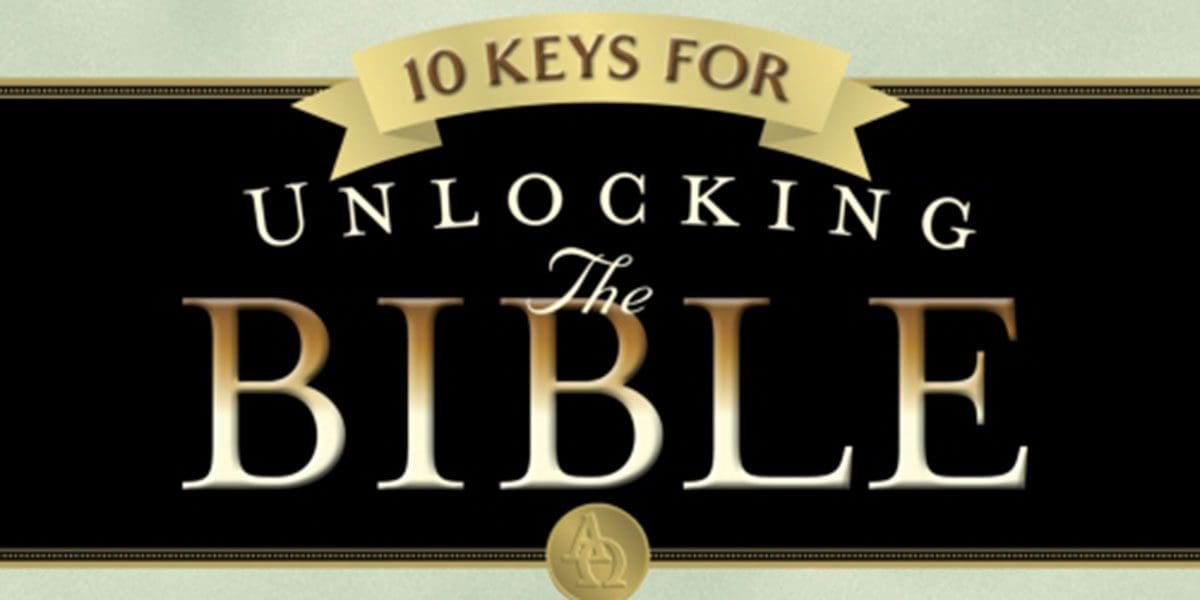Please open your Bible at Proverbs 19. We are looking today at the theme of work, or more particularly its opposite. Proverbs introduces us to a tragic character whose life ends in ruin. The name of this character is the sluggard. He is referred to fourteen times in Proverbs ––twice in the verses read for us, Now this tragic character is frequently presented in comic terms.
The sluggard buries his hand in the dish
and will not even bring it back to his mouth – Proverbs 19:24
Take in this picture: the sluggard sits down at the table, food is put in front of him, and he loads the food onto his fork, but that’s as far as he gets. Lifting the fork to his mouth is just too much of an effort for this man. Then we read,
As a door turns on its hinges, so does a sluggard on his bed, – Proverbs 26:14
The problem with the sluggard is not just that he likes to lie in bed. He is hinged to it! He turns one way and then the other, but never gets up! He is like a caricature of a politician or a celebrity; some aspect of their face is exaggerated, but you immediately know who it is.
The sluggard is full of excuses. He is risk adverse, and he always has a reason for not doing the work that needs to get done.
The sluggard says, “There is a lion outside!
I shall be killed in the streets!” – Proverbs 22:13
When we read proverbs like these, we are meant to smile and laugh, but proverbs like these are also meant to make us think. In the caricature we recognize the great dangers of laziness.
I have no doubt that the vast majority of us here today work very hard indeed. If that is true of you, your natural reaction will be to think this is a message for other people but not for me. Well, not so fast! There is something here for all of us today no matter how hard working we are.
1. The Profile of an Unproductive Person
a. He is slow to Start
The sluggard does not plow in the autumn;
he will seek at harvest and have nothing. – Proverbs 20:4
This proverb draws attention to the long term effects of putting off the things we need to do now. There is a season for plowing, there is a season for sowing and there is a season for reaping. Plowing is hard work and the sluggard does not want to do it.
Now, the context is very important: When God’s people came into Canaan, every family was given a plot of land. God gave them homes they did not build, wells they did not dig, and vineyards they did not plant (Deuteronomy 6:11). God gave them the means of sustaining themselves. Everything they needed for life was theirs, and it was all given freely by the grace and abundance of Almighty God. Their part was to work the fields that God had given to them.
Working the fields that God had given was the work God had called His people to do. But the sluggard is slow to start. He does not plow in the autumn. So when the harvest comes, and all of his neighbors are bringing in the grain and produce of the land that will sustain them, but the sluggard has nothing. Perhaps most famously, the book of Proverbs draws a contrast between the person who does not prepare for the future and the insects who do.
Go to the ant, O sluggard; consider her ways, and be wise.
Without having any chief, officer, or ruler, she prepares her bread in summer
and gathers her food in harvest, – Proverbs 6:6-8
These tiny insects are wise enough to know that what you do now relates to what you will have in the future. Little ants know that you need to prepare for the future, so they work without supervision, and thus serve as an example for us. The unproductive person needs to be supervised all the time, but ants see what needs to be done, and they get on with doing it. But compared to these industrious ants, the sluggard delays. He postpones and procrastinates. He says, ‘Its not good weather today. I’ll get round to my plowing tomorrow,’ and of course he never does.
b. He is Easily Distracted
Whoever works his land will have plenty of bread,
but he who follows worthless pursuits will have plenty of poverty. – Proverbs 28:19
What keeps the sluggard from doing the work that God has called him to do and stewarding that which God has trusted him. What keeps the sluggard from this is that he is easily distracted. He lacks focus. He follows worthless pursuits, and of course, the person who is fascinated with everything, invariably, achieves nothing.
We live in a world of constant distraction, from the beginning of our morning till the end of the day. The reason this sluggard has nothing at harvest is not that he refused to work; it simply that he just never quite got round to doing it.
How long will you lie there, O sluggard?
When will you arise from your sleep?
A little sleep, a little slumber, a little folding of hands to rest, – Proverbs 6:9-10
Notice it’s just a little sleep. He says, “I’ll get round to the plowing when I’m ready, but right now I just feel like a little sleep. Well, not even sleep: I just want to have a little snooze first. Well not even a little snooze. Just let me have a few minutes in my chair with my hands folded. Then I’ll get it done.” But after that, there is another distraction. He says, “I’ll just do this first, and then I will get round to the plowing.“
This person makes too many concessions, too many postponements, too many delays. It all happens “little by little,” and his life slips away. So the sluggard has no harvest; not because he made some grand decision not to plough, but because, through a thousand small concessions to his own flesh, and as a result, he never got round to doing what God had called him to do.
c. He does not Finish
Whoever is slothful will not roast his game,
but the diligent man will get precious wealth. – Proverbs 12:27
Clearly the person who is slow to start, and is easily distracted, won’t be able to finish. Here the sluggard does get started, and he finds some food and brings it home. But then he loses interest and moves onto something else. So he never gets round to roasting the game he brought home.
The pattern of this person’s life is that he is always moving onto something else. Something new catches his eye and off he goes, leaving behind him a trail of incomplete projects and unfinished business. Things that he started but did not continue, and never completed because he did not continue, and as a result, this takes us to a fourth mark of the unproductive person.
d. He Never Rests
This is surprising because the sluggard is hinged to his bed! But here’s the irony: the person who keeps putting off what needs to be done can never rest. Even when he sleeps, he never really rests, because always in the back of his mind, he knows what he has to do. God rested when He has completed His work, and the price of putting off what God has called you to do is that you never really rest, no matter how long you may sleep.
The soul of the sluggard craves and gets nothing,
while the soul of the diligent is richly supplied. – Proverbs 13:4
Notice that this proverb is about the soul. Not only the barns of the sluggard are empty; the soul of the sluggard is empty as well. Laziness will empty your wallet, but it will do something worse also. Laziness will hollow out your soul because constantly voiding what God has called you to do is soul-destroying.
This is why “the soul of the sluggard craves.” The sluggard wants a harvest, but he won’t do what it takes to get one, so he gets nothing. He would like to be like his neighbors, but he does not have a harvest, and he won’t do what he has to get one.
No one wants to be like the sluggard. But his profile gives us a really helpful grid for understanding what it takes to be a more productive person. Here are four questions: What do I need to begin? Where do I need to stay focused? What do I need to complete? When do I need to rest?
2. The Motive of a Hard-Working Person
I passed by the field of a sluggard, by the vineyard of a man lacking sense, and behold, it was all overgrown with thorns; the ground was covered with nettles, and its stone wall was broken down. – Proverbs 24:30-31
Picture a wise man walking in the countryside. The path takes him past the edge of one little farm after another. It’s a beautiful walk. First he goes past a field of ripening corn, and as he looks across the field he sees the little house of the one who owns it. “Its going to be a good harvest and when it comes, these people will be blessed,“ he says to himself. Then he goes past a vineyard, with clusters of grapes hanging from the branches of the vine. Then he goes past a little orchard, and then a vegetable garden and so on.
But then he comes to a property that looks very different. This field is overgrown with thorns, the ground is covered with nettles, and the stone wall round the field is broken down. God has given to the person who lives here a field, but this person has not used what he has been given. The tragedy of the neglected field is not just that the sluggard has failed to provide for himself, but that he is not able to contribute to the needs of others.
The desire of the sluggard kills him, for his hands refuse to labor.
All day long he craves and craves, but the righteous gives and does not hold back. – Proverbs 21:25-26
Notice the contrast in this verse is between the sluggard, and the righteous. Here’s the difference. The righteous has a good harvest, and so he is able to give to others. He is able to give and he does not hold back, but the sluggard who did not plough, has nothing to give. What God has given has been ignored.
God gave the sluggard a field that would produce all that he needed for himself and more that he could have given to others. But the sluggard did not use what God had trusted to him––his God-given gift, and so the field became overgrown, and the wall was broken down.
Right here in Proverbs, particularly between the contrast of the righteous person and the sluggard, is the seed of a principle that is drawn out and made clear in the New Testament:
Love is the great biblical motive for work.
Let the thief no longer steal, but rather let him labor, doing honest work with his own hands, so that he may have something to share with anyone in need. – Ephesians 4:28
The motive for using the gifts that God has given to us is not simply that I will have what I need. It is so that I will be able to contribute to the needs of others! The motive for our work is that I will have something to share: Love is the great motive for all of our work, and it begins with our love for God.
Whatever you do work at it with all your heart,
as working for the Lord, not for men – Colossians 3:23 (NIV)
These words from Colossians are above the door of my study at home. While I normally go into the study with great joy, like everyone else, there are days when one struggles. So on days when I am struggling, I sometimes touch it on the way in, and it helps me to say, “I’m doing this for you Lord. I don’t feel like it today, but I want to offer what I do to you as worship.”
Whatever your work is, offer it to God as worship! “I am writing this essay for You Lord. I’ll interact with this customer for Your glory, Lord.” There may be times when your work is hard or dull or boring. There will be times when you would rather be doing something else, but you will be helped and lifted as you say, Lord help me to offer what I do today to you as worship, and let me bring blessing to others as I do it. Whatever your work, love is the great motive for pursuing all that God has called you to do.
Rebecca DeYoung, who teaches at Calvin College, has written a book on the seven deadly sins, in which she describes sloth as “resistance to the demands of love.” I wonder if you have ever thought about that: Laziness is resistance to the demands of love.
She describes what can easily happen in a marriage. A husband and wife get into an argument and then they retreat to different parts of the house. Its easier to stay at a miserable distance than to do the hard work of saying sorry, forgiving and reconciling.
“Do they want the relationship? Yes they do… But do they want to do what it takes to be in that relationship…? Well maybe tomorrow. For now at least, each spouse wants the night off to wallow in his or her own selfish loneliness.” [1]
Its easy to get lazy in love: to take a relationship for granted, and to let it drift because you can’t be bothered to face what’s wrong and make the effort to try and put it right. It is a great sin to let love die because you are too lazy to do the hard work it takes to keep it alive.
Look honestly at your own life: Where are there sins that need to be confessed? Where do the broken walls of trust need to be repaired. Where have you neglected the care that God has called you to give, the work He has called you to do? Repentance, like plowing, is hard work, but in due time it will yield a harvest.
Someone may say, “There’s no point. Nothing I do will make any difference.” But take what God says as a word of encouragement:
Let us not grow weary of doing good, for in due season we will reap, if we do not give up.” – Galatians 6:9
It is a great sin to let love die because you are too lazy to do what it takes to keep it alive. And it would be a tragic loss to miss eternal life, because you were too lazy to do what it takes to find it. Let me encourage you with these Scriptures:
Fight the good fight of the faith.
Take hold of the eternal life to which you were called… – 1 Timothy 6:12Strive to enter through the narrow door… – Luke 13:24
Do not work for the food that perishes, but for the food that endures to eternal life, which the Son of Man will give to you – John 6:27
Ask, and it will be given to you; seek, and you will find;
knock, and it will be opened to you.
For everyone who asks receives, and the one who seeks finds, and to the one who knocks it will be opened. – Matthew 7:7-8
Don’t be a lazy Christian. Trusting God isn’t easy for anyone; praying is hard work, and persevering can sometimes seem exhausting. But if you will not plough, how will you have a harvest?
3. The Joy of a Christ-like Person
a. Jesus Began Early
Did you notice how Jesus is exactly the opposite of everything described about the sluggard? The sluggard was slow to start but at the age of twelve, Jesus was in the temple (Luke 2:49). He gave Himself to the Father’s business, and He did it out of love for the Father and out of love for us.
Is there something that God has prompted you to do that you have been putting off? Have you be procrastinating and delaying? Telling yourself there is plenty of time? Have you become aware of your need to get right with God, and seek the new life that Christ offers?
CS Lewis makes the point that the devil has may ways of ruining souls, but his most effective is to make people think there is plenty of time. Scripture says:
Today, if you hear His voice, do not harden your heart! – Hebrews 3:15
Now is the time for repentance; to do the time to do that which you know must be done. Now is the time for obediently following after the call of Jesus Christ and pursuing the call He has on your life.
b. Jesus Stayed Focused
The sluggard was so easily distracted, but there was an urgency about everyday in the life of Jesus.
We must work the works of him who sent me while it is day;
night is coming, when no one can work. – John 9:4
Where in your life do you need to stay focused and to persevere? Jesus set his face like a flint to go to Jerusalem. He set his face to do the hardest thing that has been done in the history of the world. So when you are discouraged, do not be distracted from doing the will of the Father, no matter how costly it may be. This is the joy of a Christ-like person.
c. Jesus Completed His Work
I glorified you on earth, having accomplished the work that you gave me to do. – John 17:4
What was Jesus’ work? He came into the world to seek and to save the lost, and He has done it! Everything that is needed to bring you from where you are right now to the eternal joy of heaven has been accomplished by the Lord Jesus Christ. That is why on the cross, He cried out in a loud voice ‘It is finished!’ (John 19:30). And having completed His work…
d. Jesus Entered His Rest
Right now He is seated at the right hand of the Father, where He is ready and able to save all who will look to Him in repentance and in faith. The opposite of everything we see in the sluggard. May it be that each and every one of us becomes like Him. God has prepared work for you to do (Ephesians 2:10).
There is a whole path of good things that God has called you to do this week. Start early, stay focused and persevere to the end so you can say with Paul, ‘I have fought the good fight, I have finished the race, I have kept the faith,’ and then by God’s grace, you to will enter His rest.
—
[1] Rebecca Konyndyk DeYoung, Glittering Vices, Brazos Press, p 86.
[elementor-template id=”128476″]





